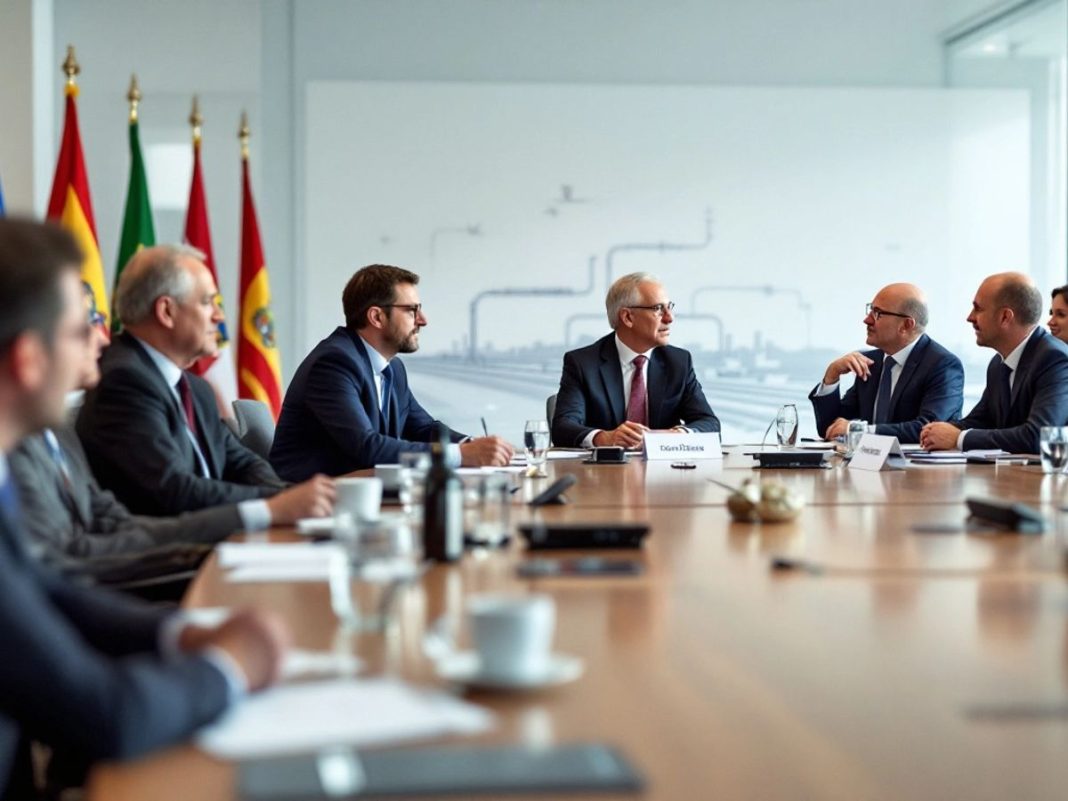The recent Iberian Summit held in Faro, Portugal, showcased the contrasting perspectives of Portuguese Prime Minister Luís Montenegro and Spanish Prime Minister Pedro Sánchez on key issues such as migration policy and railway connections. The summit resulted in the signing of 11 agreements, but significant differences remain between the two leaders.
Key Takeaways
- Divergent Views on Migration: Montenegro advocates for reception centers for irregular immigrants, while Sánchez emphasizes a positive narrative on immigration as a European responsibility.
- Railway Connections: Spain commits to completing the high-speed train line between Madrid and Lisbon by 2030, whereas Portugal prioritizes the Lisbon-Porto-Vigo connection, aiming for completion by 2032.
- Bilateral Relations: Despite political changes in Portugal, both leaders reaffirmed the strength of bilateral relations and cooperation on various fronts.
Divergent Perspectives on Migration
During the press conference following the summit, Montenegro reiterated his stance on establishing centers for irregular immigrants, arguing for a more structured approach to immigration. In contrast, Sánchez called for a collective European effort to foster a positive discourse surrounding immigration, highlighting the need for a unified response to migration challenges.
Railway Connections: A Matter of Priority
The summit also focused heavily on railway infrastructure, with both leaders addressing the need for improved connections between the Iberian Peninsula and the rest of Europe. Key points include:
- Madrid-Lisbon High-Speed Train: Sánchez confirmed Spain’s commitment to completing this line by 2030.
- Lisbon-Porto-Vigo Connection: Montenegro emphasized that this connection is Portugal’s top priority, with plans to expedite its completion by 2032.
- Future Projects: Both leaders discussed additional railway projects, including connections between Aveiro and Salamanca, and Faro and Huelva-Sevilla.
Strengthening Bilateral Relations
The summit marked the first bilateral meeting since the recent Portuguese elections, which saw the conservative Montenegro take over from socialist António Costa. Despite the political shift, both leaders expressed confidence in the continuity of strong relations between Portugal and Spain. They highlighted the importance of collaboration on various issues, including social security and labor relations, which affect many citizens who cross the border for work.
Energy and Environmental Cooperation
In addition to migration and transportation, the summit addressed energy interconnections between the two countries. Montenegro and Sánchez called for the realization of previously established commitments regarding energy interconnections, particularly in the context of renewable energy investments. They emphasized the need for a more competitive and environmentally sustainable energy framework in the region.
Conclusion
The Iberian Summit underscored the complexities of cooperation between Portugal and Spain, particularly in light of differing priorities on migration and infrastructure. While both leaders remain committed to enhancing bilateral relations, the path forward will require careful negotiation and alignment of their respective agendas. The outcomes of this summit will likely shape the future of Iberian cooperation in the coming years.
Sources
- Montenegro e Pedro Sánchez com posições divergentes sobre política de migrações, RTP.
- Cimeira ibérica: Montenegro e Sánchez escrevem a Barnier sobre interligações ferroviárias – Empresas – Jornal de Negócios, Jornal de Negócios.
- Sánchez comprométese co tren Madrid-Lisboa mais Portugal insiste en que a súa prioridade é a conexión ferroviaria coa Galiza, Nós Diario.
- Espanha quer TGV Lisboa-Madrid em 2030. Montenegro tem outra prioridade e não se compromete – CNN Portugal, CNN Portugal.
- Portugal e Espanha exigem ligações ferroviárias ao resto da Europa, RTP.

